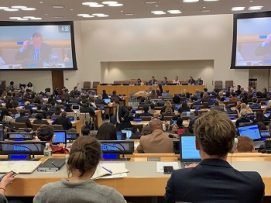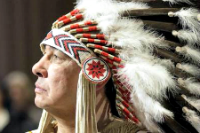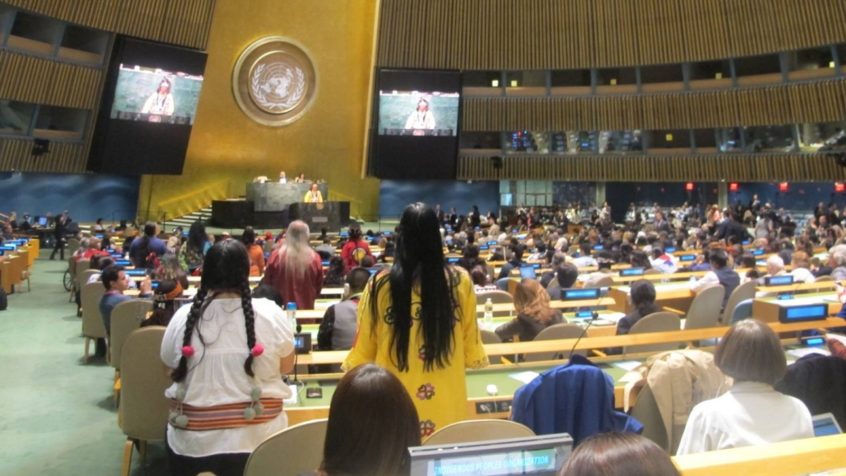
GA Third Committee: Rights of Indigenous Peoples
On 7 November, the Social, Humanitarian and Cultural Committee (Third Committee), 44th meeting of the 74nd session of the General Assembly discussed Rights of indigenous peoples [item 67 (a)].
The Committee took up the draft resolution “Rights of indigenous peoples” (document A/C.3/74/L.19/Rev.1).
The resolution among other issues includes:
- Decision to expand the mandate of the United Nations Voluntary Fund;
- Proclamation of the period 2022–2032 as the International Decade of Indigenous Languages, and invites the United Nations Educational, Scientific and Cultural Organization to serve as the lead agency for the International Decade, in collaboration with the Department of Economic and Social Affairs of the Secretariat, and other relevant agencies, within existing resources;
- Reiteration of its decision to convene a high-level event during 2019, organized by the President of the General Assembly, for the conclusion of the International Year of Indigenous Languages [17 December 2019]
The representative of Bolivia, presenting the draft resolution, said there are 370 million indigenous peoples around the world, constituting 6 per cent of the global population. Indigenous peoples are guardians of the world’s resources, yet they represent the poorest populations, facing multiple challenges. The draft resolution contributes to legal policies aimed at protecting indigenous peoples, including preserving indigenous knowledge and addressing the challenges of climate change. It also underscores efforts by Member States to combat illegal trafficking of indigenous peoples and provide the necessary assistance to indigenous communities so they can participate in various United Nations forums. Recalling that 2019 is the International Year of Indigenous Languages, he expressed Bolivia’s support for the resolution.
The representative of Brazil stressed his country’s commitment to the protection of indigenous peoples and to the revitalization and preservation of indigenous languages. While joining consensus on the draft, he nonetheless disassociated from preambular paragraph 7, referring to the Global Compact for Safe, Orderly and Regular Migration, to which Brazil is not a signatory.
The representative of Ecuador, associating with Bolivia, said the draft resolution demonstrates important progress that has been made for indigenous peoples within the United Nations system. Ecuador is committed to preserving and revitalizing indigenous languages, he said, stressing that 40 per cent of them are at risk of disappearing. In this context, he called for urgent measures to be taken nationally and internationally.
The representative of Canada recalled that her country recently passed historic legislation, co-developed with indigenous partners, to help ensure the vitality of indigenous languages in Canada. The Government will be in a position to consider the ways in which it can give meaningful effect to the International Year of Indigenous Languages, working in partnership with indigenous peoples.
The Committee then approved draft resolution “L.19/Rev.1” without a vote.
To read the Meetings Coverage of the session, click here >>>
More information:
To read the draft resolution, please click here
Statements delivered by States and UN System, please visit the UN Paper Smart here >>>
Webcast of the session:



